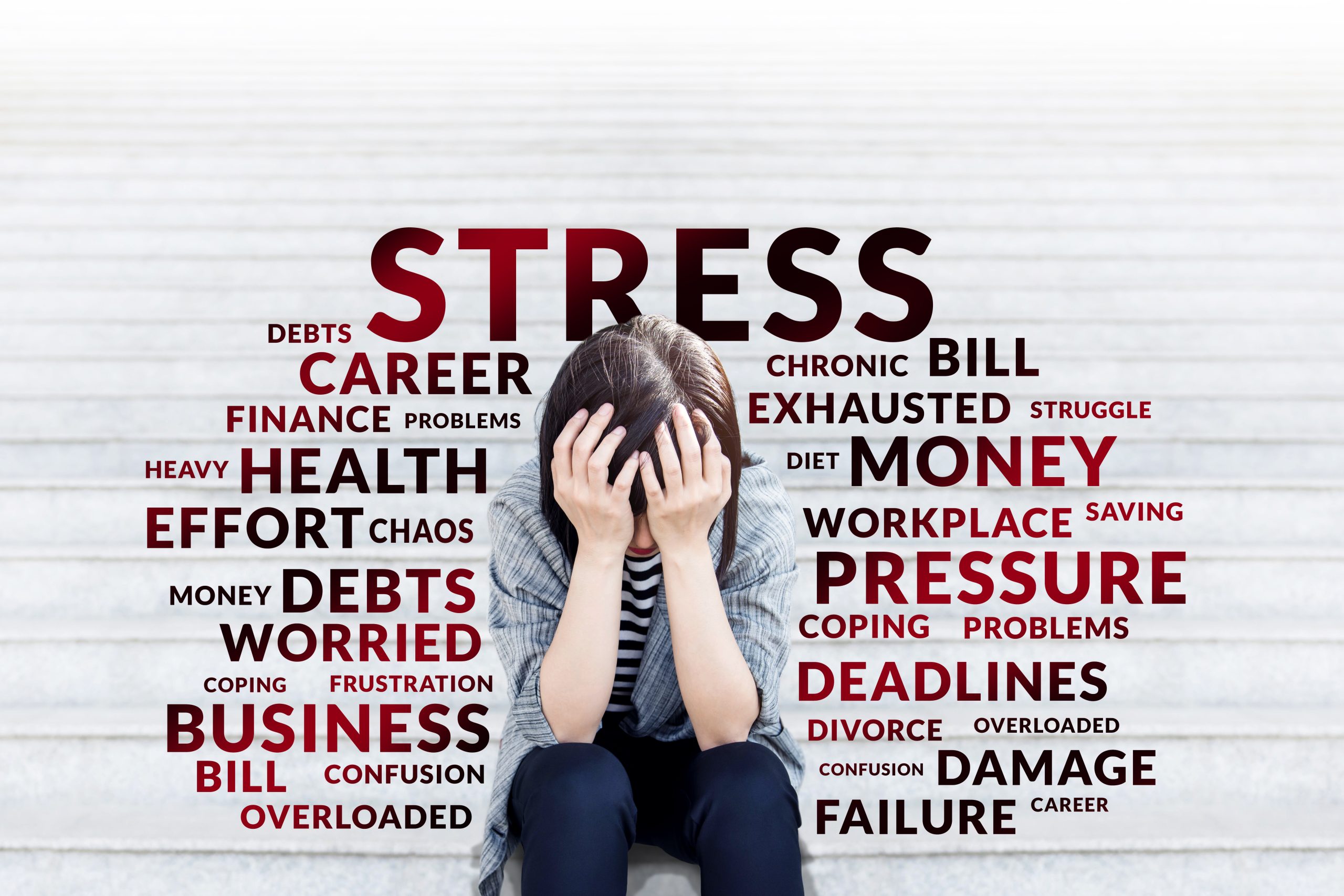Chapter 6: Stress
Chapter Learning Objectives
- 6.1 Describe the physical, emotional, and behavioral symptoms of stress and explain the difference between positive and negative stress. (SLO 2, 4)
- 6.2 Apply stress management techniques such as mindfulness, time management and social support to rea-life academic or workplace scenarios. (SLO 2, 4)
- 6. 3Analyze the impact of chronic stress on personal well-being and professional performance, including its effects on decision-making and interpersonal relationships. (SLO 2, 4)

Causes of Stress
As a student, you’re probably plenty familiar with the experience of stress—a condition characterized by symptoms of physical or emotional tension. What you may not know is that it’s a natural response of the mind and body to a situation in which a person feels threatened or anxious. Stress can be positive (e.g., preparing for a wedding) or negative (e.g., dealing with a natural disaster).
Stress can hit based on something specific happening—before an important test, after losing a job, or during conflict in a relationship. Or, it may feel like stress is a persistent fact of life.
While everyone experiences stress at times, a prolonged bout of it can affect your health and ability to cope with life. That’s why social support and self-care are important. They can help you see your problems in perspective… and the stressful feelings ease up.
Sometimes stress can be good. For instance, it can help you develop skills needed to manage potentially challenging or threatening situations in life. However, stress can be harmful when it is severe enough to make you feel overwhelmed and out of control.
Strong emotions like fear, sadness, or other symptoms of depression are normal, as long as they are temporary and don’t interfere with daily activities. If these emotions last too long or cause other problems, it’s a different story.
Signs and Effects of Stress
Physical or emotional tension are often signs of stress. They can be reactions to a situation that causes you to feel threatened or anxious. The following are all common symptoms of stress:
- Disbelief and shock
- Tension and irritability
- Fear and anxiety about the future
- Difficulty making decisions
- Being numb to one’s feelings
- Loss of interest in normal activities
- Loss of appetite (or increased appetite)
- Nightmares and recurring thoughts about the event
- Anger
- Increased use of alcohol and drugs
- Sadness and other symptoms of depression
- Feeling powerless
- Crying
- Sleep problems
- Headaches, back pains, and stomach problems
- Trouble concentrating
It’s not only unpleasant to live with the tension and symptoms of ongoing stress; it’s actually harmful to your body, too. Chronic stress can impair your immune system and disrupt almost all of your body’s processes, leading to increased risk of numerous health problems, including the following:
- Anxiety
- Depression
- Digestive problems
- Heart disease
- Sleep problems
- Weight gain
- Memory and concentration impairment
That’s why it’s so important to learn healthy ways of coping with the stressors in your life.
Ways of Managing Stress
The best strategy for managing stress is by taking care of yourself and seeking help in different ways. Click on the headings below to read more about these tips to manage stress:
Avoid drugs and alcohol
They may seem to be a temporary fix to feel better, but in the long run they can create more problems and add to your stress—instead of taking it away.
Manage your time
Work on prioritizing and scheduling your commitments. This will help you feel in better control of your life, which, in turn, will mean less stress.
Find support
Seek help from a friend, family member, partner, counselor, doctor, or clergy person. Having a sympathetic listening ear and talking about your problems and stress really can lighten the burden.
Asking your instructor or boss about what is expected of you can sometimes help clarify what you need to do and relieve stress.
Connect socially
When you feel stressed, it’s easy to isolate yourself. Try to resist this impulse and stay connected. Make time to enjoy being with classmates, friends, and family; try to schedule study breaks that you can take with other people.
Slow down and cut out distractions for a while
Take a break from your phone, email, and social media.
Take care of your health
- Eat a healthy, well-balanced diet
- Exercise regularly
- Get plenty of sleep
- Try a relaxation technique, such as meditation or yoga, or treat yourself to a massage
- Maintain a normal routine
Meditation is an activity where you try to focus or clear your mind of distractions using mental and physical exercises. It doesn’t have to be connected to a specific religion or faith and can be done anywhere when just taking a moment to think about your breath.
Watch all, or even a part, of this “Body Scan Meditation” video to experience how to work towards fully relaxing your mind and body:
Video: Body Scan Meditation
If the self-care techniques listed above aren’t enough and stress is seriously interfering with your studies or life, don’t be afraid to get help. Recognizing what is causing your stress might be just the step you need to make changes and become healthier, happier, and more productive you, who will meet your goals!
To cite this specific chapter use this format:
Dillon, D. (n.d.). Chapter 6: Stress. In Pouska, B. (Ed.), Business Professionalism. New Mexico Open Educational Resources Consortium Pressbooks. Https://nmoer.pressbooks.pub/businessprofessionalism/
Licenses and Attributions
External Resource
Mayo Clinic. (2016). Chronic stress puts your health at risk. (Accessed April 27, 2018.)
Original chapter source: Adapted from Blueprint for Success in College: Indispensable Study Skills and Time Management Strategies by Dave Dillon.

